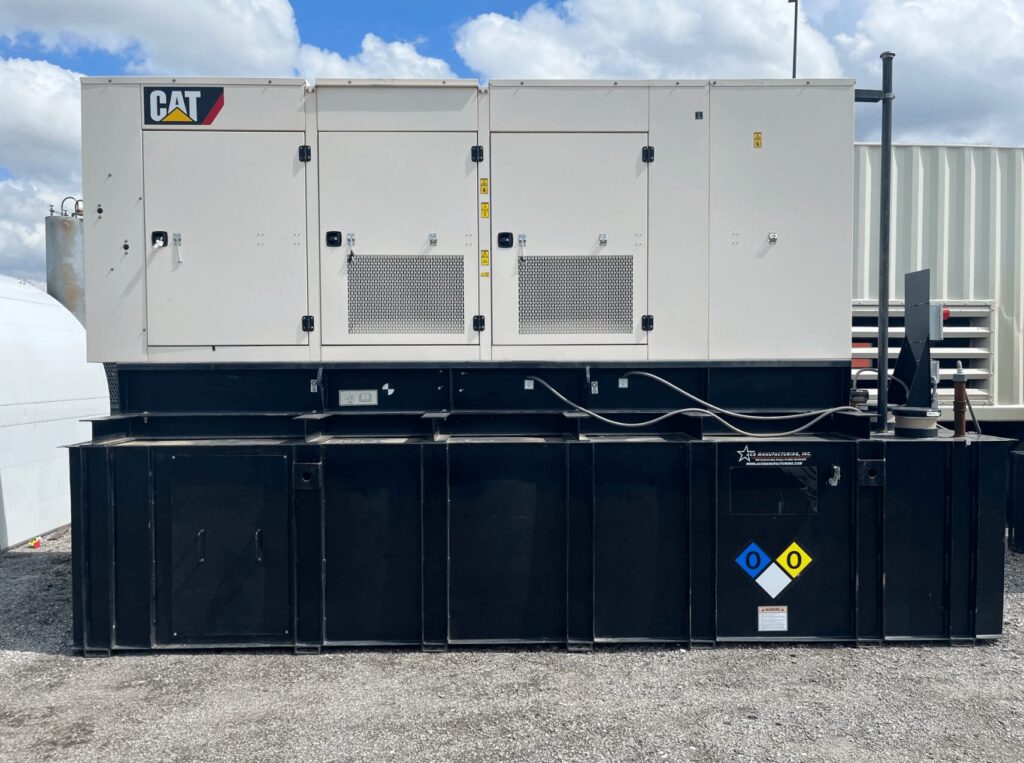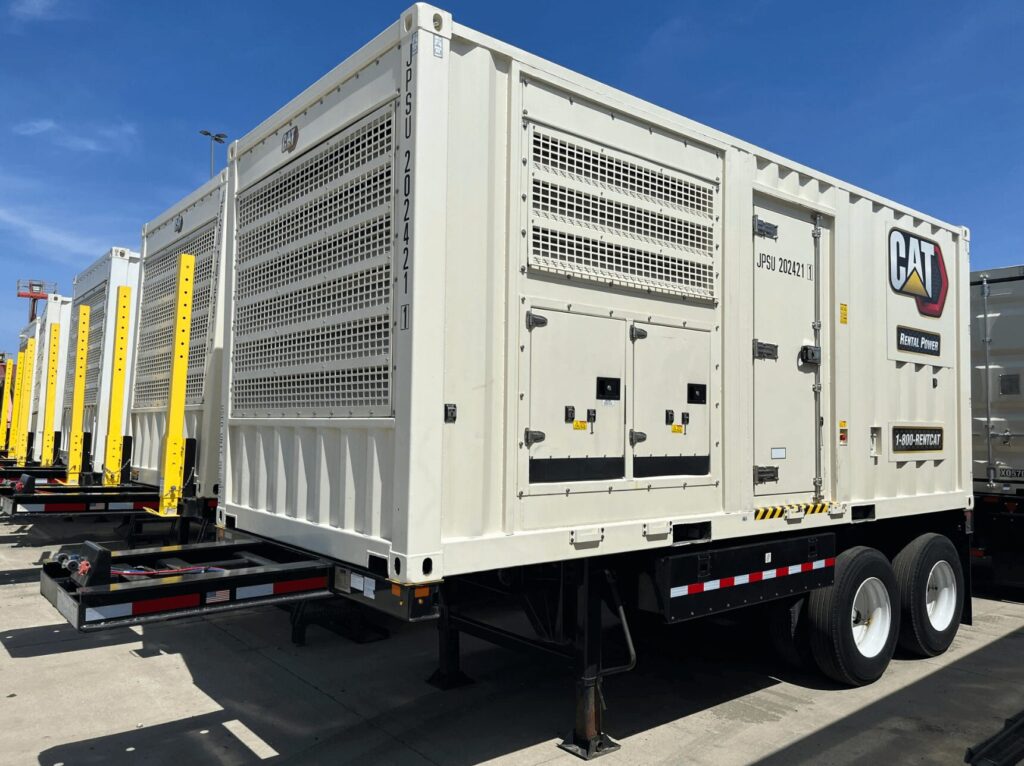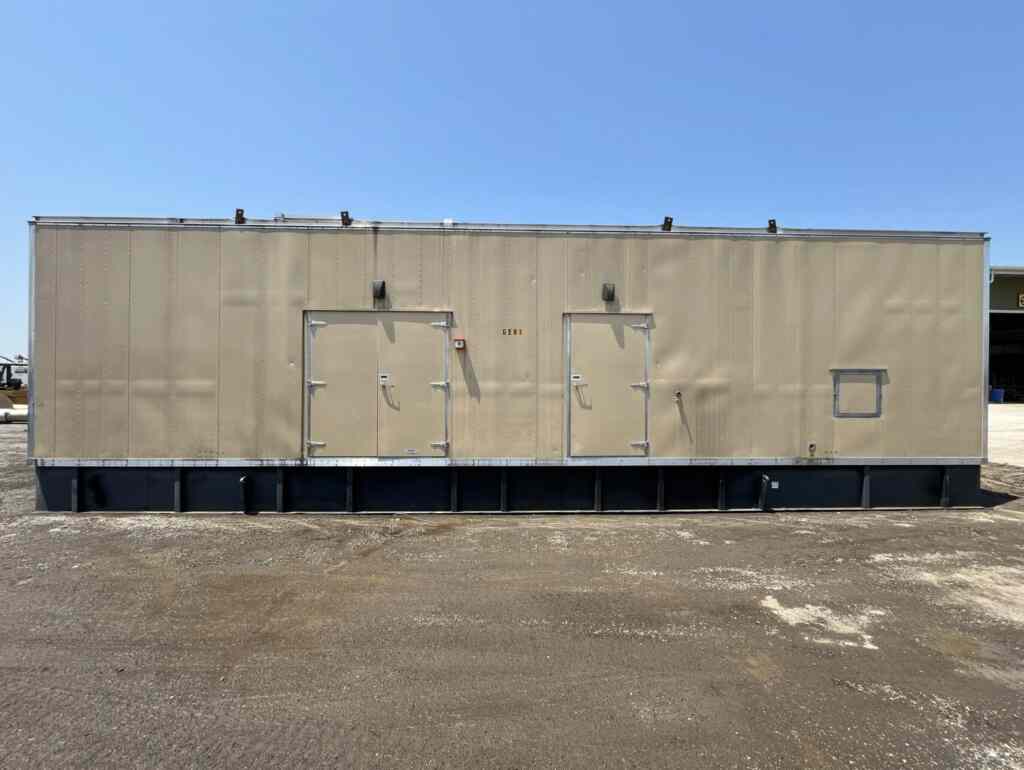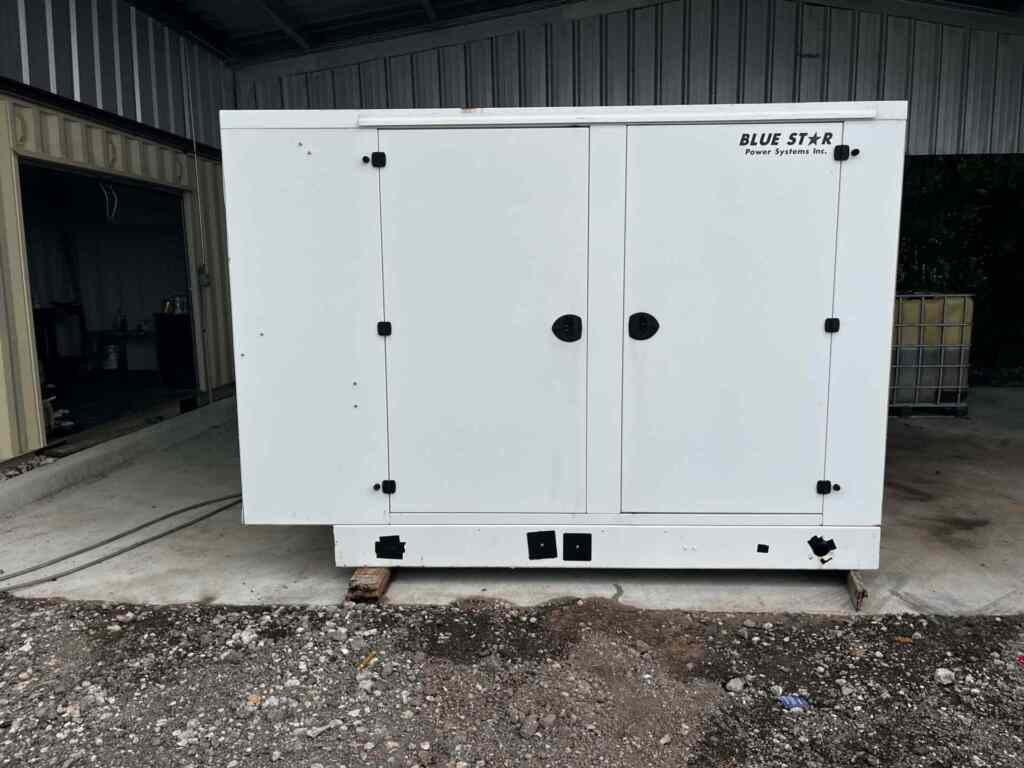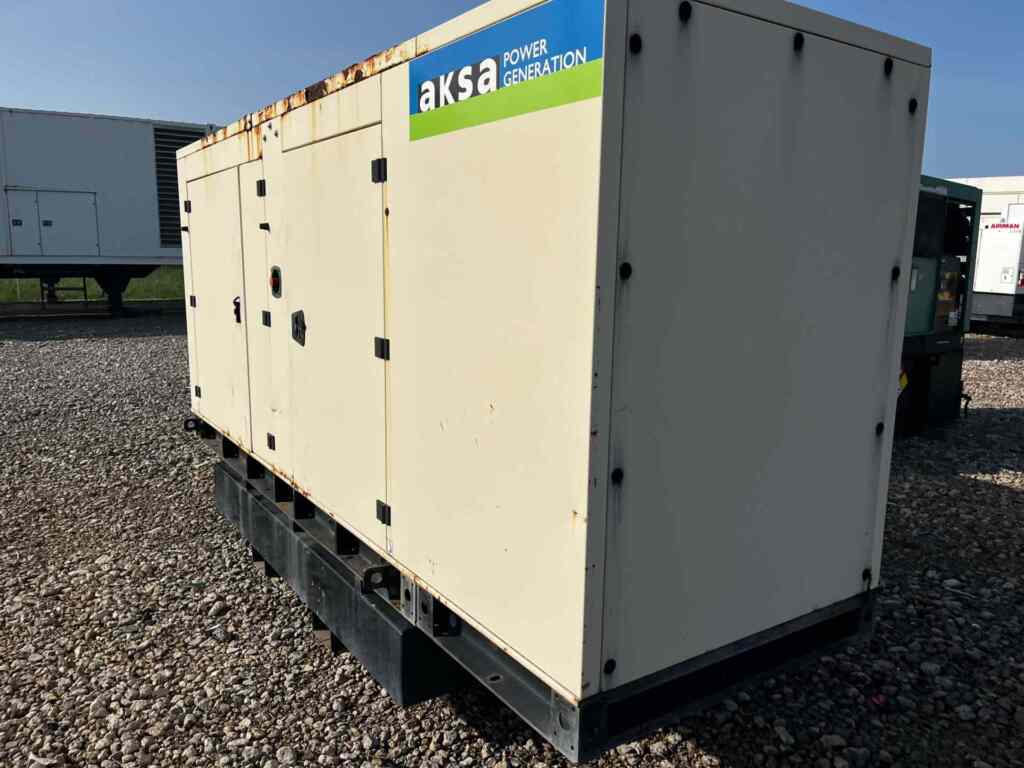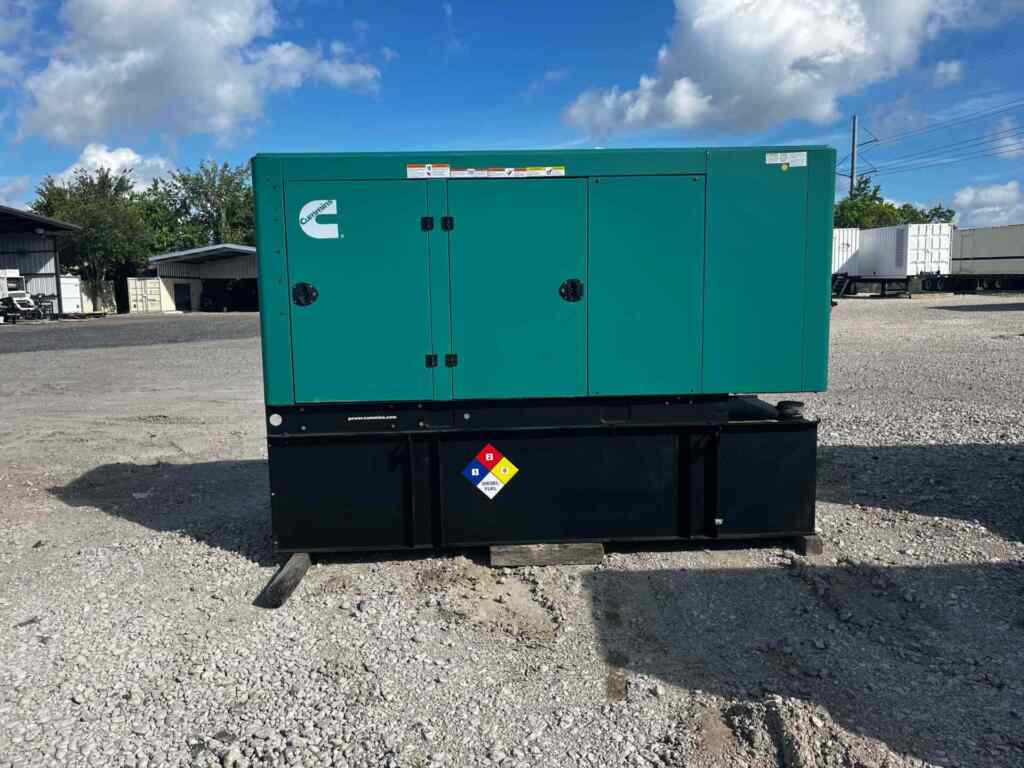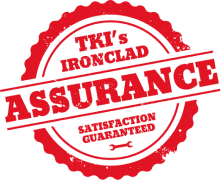Construction sites demand reliable power to keep projects moving forward. From powering tools and equipment to lighting work areas and running temporary offices, construction generators play an important role in keeping job sites productive and safe. The use of jobsite generators fuels progress on building sites across America, ensuring that work can continue efficiently regardless of grid power availability.
The Importance of Power on Construction Sites
Construction sites often lack access to grid power, especially in the early stages of a project. This creates a significant need for portable power solutions. Construction generators fill this gap by providing the power to keep projects running smoothly and safely. Let’s examine in detail how jobsite generators address critical power needs within the construction industry.
Powering Tools and Heavy Equipment
One of the primary functions of construction generators is to power the wide array of tools and equipment used on jobsites:
- Electric power tools: drills, saws, grinders, and welding machines.
- Heavy machinery: cranes, excavators, and concrete mixers.
- Pumps for dewatering and concrete pouring.
- Compressors for pneumatic tools.
Without reliable power, productivity grinds to a halt. Construction generators ensure that work can continue uninterrupted, regardless of the availability of grid power.
Jobsite Lighting for Safety and Extended Work Hours
Adequate lighting is criticall for both safety and productivity on construction sites. Generators power various types of lighting solutions:
- Portable light towers for large area illumination.
- Task lighting for specific work areas.
- Safety lighting for walkways and hazardous zones.
- Emergency lighting systems.
With proper lighting, work can safely continue during early morning or evening hours, potentially accelerating project timelines.
Climate Control in Temporary Structures
Construction generators play a vital role in maintaining comfortable and safe working conditions in temporary structures:
- Heating in cold weather to prevent freezing of materials and ensure worker comfort.
- Air conditioning in hot climates to prevent heat stress and maintain productivity.
- Ventilation systems to remove dust and fumes.
- Dehumidification to control moisture levels in enclosed spaces.
These climate control measures not only improve working conditions but can also be importantl for certain construction processes that require specific temperature and humidity levels.
Powering Office Equipment and Communications
Modern construction sites rely heavily on technology for project management and communication. Generators provide power for:
- Computers and tablets for accessing plans and specifications.
- Printers and plotters for producing on-site documents.
- Charging stations for mobile devices.
- Wi-Fi routers and network equipment.
- Video conferencing equipment for remote consultations.
Maintaining reliable communication and access to digital resources is essential for efficient project management and coordination.
Backup Power During Outages
Even when grid power is available, construction generators serve as crucial backup systems:
- Preventing work stoppages during unexpected power outages.
- Ensuring safety systems remain operational at all times.
- Protecting sensitive equipment from power surges or interruptions.
- Maintaining security systems and site monitoring.
This redundancy helps prevent costly delays and ensures that critical systems remain functional under all circumstances.
Specialized Power Needs
Some construction projects have unique power requirements that can only be met by dedicated generators:
- High-voltage power for specialized equipment.
- Clean power for sensitive electronic systems.
- Temporary power for building commissioning and testing.
- Mobile power solutions for moving work zones.
Construction generators can be customized to meet these specific needs, providing flexibility that grid power often cannot match.
Economic Impact of Reliable Power
The availability of consistent, reliable power from construction generators has significant economic benefits:
- Reduced downtime and increased productivity.
- Ability to work extended hours when necessary.
- Prevention of material waste due to power-related quality issues.
- Improved worker morale and efficiency in comfortable conditions.
- Potential for faster project completion and earlier return on investment.
By ensuring a steady power supply, construction generators help keep projects on schedule and within budget.
Environmental Considerations
While generators are essential, their environmental impact is an important consideration:
- Use of cleaner-burning fuels and more efficient engines to reduce emissions.
- Implementation of smart power management systems to optimize fuel consumption.
- Integration with renewable energy sources like solar panels for hybrid power solutions.
- Proper sizing and load management to prevent unnecessary fuel waste.
Modern construction generators are designed with these factors in mind, balancing the need for power with environmental responsibility.
Construction generators are more than just a convenience- they are a necessity on modern job sites. They provide the lifeblood of power that keeps projects moving forward safely and efficiently. Without reliable generators, construction projects face significant challenges, including delays, safety risks, and increased costs. By understanding and addressing these critical power needs, construction managers can ensure their projects have the energy they need to succeed.
Types of Construction Generators
Construction sites use different types of generators depending on their specific power requirements:
| Generator Type | Power Output | Common Applications |
| Portable Generators | 3-15 kW | Small tools, lighting |
| Mid-Size Generators | 20-100 kW | Medium equipment, temporary offices |
| Large Industrial Generators | 100+ kW | Heavy machinery, entire jobsite power |
Key Features of Construction Generators
Jobsite generators are designed to withstand harsh conditions and meet the unique demands of construction environments. Important features include:
- Durability: Rugged construction to withstand dust, debris, and weather.
- Portability: Trailer-mounted designs for easy relocation.
- Fuel efficiency: Extended run times to minimize refueling.
- Quiet operation: Reduced noise levels for urban job sites.
- Multiple outlets: Various voltage options to power different equipment.
- Safety features: Automatic shut offs and GFCI protection.
How to choose the Right Size Generator for Your Construction Site
Getting the right size generator is important. If it’s too small, you could damage equipment or halt work. If it’s too big, you’ll waste fuel and money. Here’s an easy way to figure out what size you need:
- Make a list of all of the equipment you’ll power at the same time. Include: Big machines like cranes or mixers; smaller tools like drills and saws; lights for night work; office equipment in your trailer; and heating or cooling systems.
- Figure out your power needs. For each piece of equipment, consider: Running watts (power used during normal operations) and starting watts (extra power needed to start the equipment up,often 2-3 times the running watts). Add up all running watts and the highest starting watts to calculate the ttotal power needed.
- Add about 20% to the final total for safety. This gives you room for additional equipment or unexpected power needs.
- Don’t forget to consider voltage requirements: Most small tools use 120 volts (single-phase), but bigger machines might need 240 volts (single-phase) or 208/480 volts (three-phase). Ensure your generator can provide the right voltage for all your equipment.
- Think about site conditions: Your location can affect you generator needs. High altitudes might require a bigger generator, while extreme temperatures can impact performance. Dusty or wet conditions might need additional special features.
- Plan for your future needs. It’s better to have a little extra power than not enough.
Choosing the right size generator can be tricky. It’s a good idea to talk to a professional generator supplier. They can look at your specific needs and help you pick the perfect generator for your job site. This way, you’ll have all the power you need without wasting money on something too big.
Fuel Options for Construction Generators
Construction generators typically run on diesel or gasoline, with some larger units using natural gas or propane. Each fuel type has advantages:
| Fuel Type | Advantages | Considerations |
| Diesel | Fuel efficient, longer lifespan, higher power output | Higher initial cost, fuel storage requirements |
| Gasoline | Lower upfront cost, widely available fuel | Shorter run times, more frequent maintenance |
| Natural Gas | Clean-burning, no on-site fuel storage | Requires gas line connection, lower power density |
| Propane | Clean-burning, long shelf life | Lower energy density, tank refills needed |
Buying vs. Renting Construction Generators
Construction companies must decide whether to purchase or rent a generator for their projects. Consider these factors:
| Renting | Buying |
| Lower upfront costs | Cost-effective for long-term use |
| Flexibility for different project needs | Always available when needed |
| Maintenance handled by rental company | Can be customized for specific needs |
| Ideal for short-term projects | Potential tax benefits |
When it comes to renting or buying a generator, many construction firms choose a mix of both. They’ll own some generators and rent others, helping them balance power needs and budget.
Maintaining and Operating Construction Generators Safely
Proper maintenance and safety practices are important for keeping jobsite generators running reliably and preventing hazards. Key tasks and considerations include:
Maintenance Tasks
- Regular oil and filter changes.
- Fuel system inspections and cleaning.
- Checking and tightening electrical connections.
- Testing battery condition.
- Inspecting and replacing belts and hoses.
Safety Practices
- Proper grounding to prevent electrical shock.
- Adequate ventilation to avoid carbon monoxide buildup.
- Regular inspection of fuel lines and connections.
- Proper fueling procedures to prevent spills and fires.
- Training operators on safe use and emergency procedures.
Following the manufacturer’s maintenance schedule and keeping detailed service records helps prevent unexpected breakdowns and extends generator life. Additionally, OSHA provides detailed guidelines for generator safety on construction sites, which should be followed closely. By combining thorough maintenance with strict safety practices, construction firms can ensure their generators operate efficiently and safely throughout the project.
Environmental Impact and Regulations
Construction generators are subject to environmental regulations, particularly regarding emissions. The Environmental Protection Agency (EPA) sets standards for generator emissions based on engine size and fuel type. Key considerations include:
- Tier 4 emissions standards for new diesel engines.
- State and local noise ordinances.
- Fuel storage and spill prevention requirements.
- Proper disposal of used oil and filters.
Many modern construction generators feature advanced emission control systems to meet these regulations while maintaining performance.
Powering Your Construction Projects with Turnkey Industries
Turnkey Industries specializes in providing high-quality construction generators for job sites across America. With over 10 years of experience in the industry, we offer:
- A vast inventory of diesel and natural gas generators from 15kW to 2000kW
- Expert consultation to ensure you get the right generator for your needs
- Rigorous testing and maintenance of all equipment
- Nationwide delivery and installation services
- Flexible purchase and rental options to fit your project requirements
Whether you need a portable generator for a small renovation or a large industrial unit for a major construction project, Turnkey Industries has the power solution you need. Contact us today at call 713-823-0890 or visit our website to learn how we can fuel your construction success with reliable, efficient jobsite generators.
 Turnkey Industries offers a variety of high-capacity
Turnkey Industries offers a variety of high-capacity 